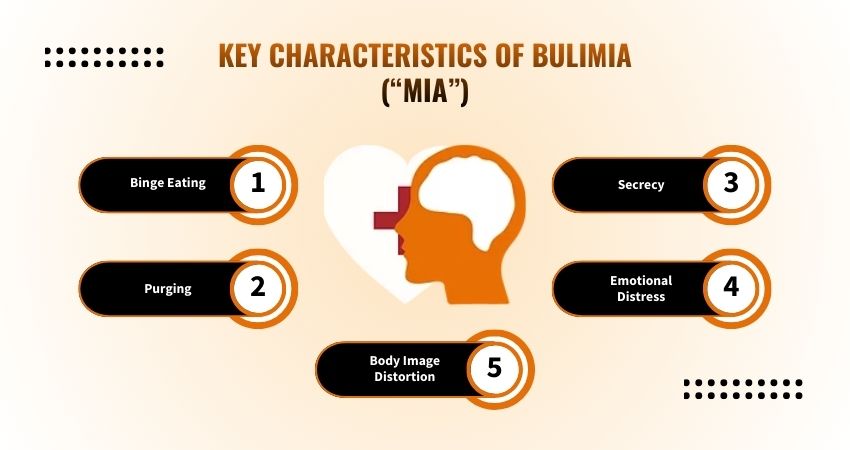“Mia” is a slang or shorthand term commonly used online to refer to bulimia nervosa, a serious and potentially life-threatening eating disorder.
Bulimia nervosa is characterized by a cycle of binge eating followed by purging behaviors, such as self-induced vomiting, excessive exercise, fasting, or misuse of laxatives or diuretics. These behaviors are often driven by an intense fear of gaining weight and a distorted body image.
Key Characteristics of Bulimia (“Mia”):

- Binge Eating: Eating unusually large amounts of food in a short time, often feeling out of control during the episode.
- Purging: Attempts to get rid of the calories through vomiting, laxatives, diuretics, or intense exercise.
- Secrecy: These behaviors are often done in private, and individuals may go to great lengths to hide their symptoms.
- Emotional Distress: Feelings of shame, guilt, anxiety, or depression often follow binge-purge episodes.
- Body Image Distortion: A strong focus on body shape and weight, often believing they are “overweight” even when they are not.
Physical and Emotional Health Risks:
If untreated, bulimia can lead to:
- Dehydration and electrolyte imbalances (which can cause heart problems)
- Tooth decay and enamel erosion (from stomach acid)
- Digestive problems, such as acid reflux or constipation
- Irregular menstruation
- Mood disorders, including anxiety and depression
Why Do People Call It “Mia”?
The term “Mia” (for bulimia) and “Ana” (for anorexia) originated in online communities and forums where disordered eating behaviors were sometimes normalized or glamorized.
It’s important to use respectful and accurate terminology when talking about eating disorders and to encourage treatment and recovery, rather than minimize the condition.
Is Bulimia Treatable?
Yes. Bulimia nervosa is a treatable condition. A combination of:
- Therapy (such as Cognitive Behavioral Therapy)
- Nutritional counseling
- Medication (when appropriate)
- Medical supervision
can significantly help individuals recover and improve their quality of life.
If You or Someone You Know Is Struggling
Early intervention can make a big difference. Our mental health professionals offer compassionate, evidence-based support for individuals dealing with eating disorders. Contact us today to learn more about our therapy options.